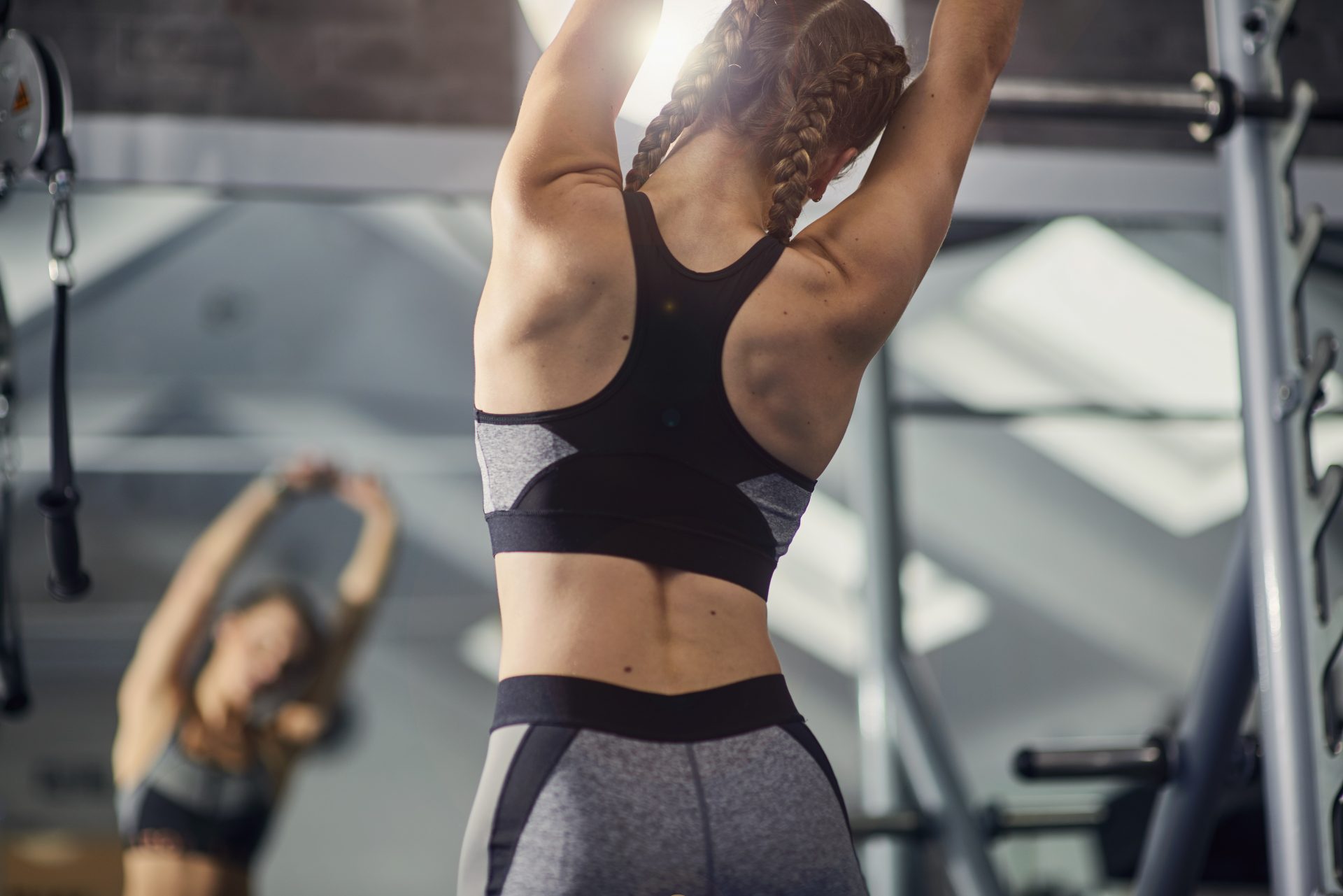Fed up with hair that gets in the way while working out? Strong Women asked expert stylists for the best ways to keep your hair healthy, protected and out of your face when training.
Just like gym leggings that won’t stay up or shorts that you have to keep pulling down, fiddling with hair that gets in the way of your workout can be an unwelcome distraction.
If you’ve ever had the painful experience of catching your hair under the barbell as you squat, you’ll know that even an all-rounder style like a pony tail doesn’t always cut it when we’re training.
While your go-to gym hairstyle right now might just be “shove it all out of my face in whatever way possible”, Strong Women spoke to expert stylists about how to keep your hair protected (and out of the way) while working out.
What impact does exercising have on your hair?
Research has shown that exercising can actually help your hair to grow. This is because when your heart rate is increased, so is the blood flow and circulation throughout your body. An increase in blood flow means that more nutrients and oxygen are reaching the scalp, which can stimulate growth.
Similar, exercising regularly can also help reduce stress – which is a major cause of hair loss. When we work out, our bodies produce endorphins, happy hormones that can boost your mood for up to 24 hours.

How can you keep your hair healthy and protected at the gym?
We know that proper form and the right equipment are key to keeping our body healthy at the gym, but most of us have probably never considered how we can protect our hair.
Even though it may seem like the best way to keep any strays at bay, stylists suggest avoiding tight hairstyles and elastics that could damage your hair as you’re moving. Instead, tying your hair at the nape of your neck – with a fabric scrunchie or coiled hair band –will reduce the amount of tension and pressure on the hair follicles.
“While exercising slick long hair back with some hair oil and tie into a pony or neat bun” says Nadia Hussain of Hair Loving Co. “This ensures comfort as well as safety, as your hair won’t come into your face whilst doing Zumba pulsing or nose-diving push-ups.”
She continues: “You can help protect curly hair by oiling the hair roots to tips before your session, and then tying it up.” She recommends oils infused with natural goodness from organic, vegan hair hydration oil enriched with avocado oil for shine, ginger oil for hair growth, vitamin E for anti-dandruff.
Afro specialist Salon 3Thirty’s senior stylist Tiff also suggests trying out “protective styles such as braids, twists or, for shorter hair, pinning up strands of hair back to the scalp” when exercising.
For curly hair and natural afros, Tiff recommends using silk scrunchies (which prevents friction and reduces thinning) to separate your hair into four sections, before loosely putting each up into a bun. Use bobby pins to secure them into place.
According to Tiff, this will “stop your curls from forming all in the same direction when you let them back down, while also allowing the air to move freely around the scalp, minimising the build-up of sweat.”
How often should you wash your hair when exercising?
“Excessive sweat on the scalp can cause long term dryness and clog your hair follicles,” says Tiff.
“It’s important to cleanse your scalp depending on how many days you train. Straight to loose curls would require more frequent wash days as this texture produces more sebum oil. However, for tighter curls and natural afro hair I advise stretching out wash days to once weekly, using co-washing in between.”
And should you wash your hair before or after a sweat session? “It’s actually a great idea to wash your hair before a workout,” says Laura Courtie, a hairstylist. “This is because the oils that are produced naturally can actually condition your hair while you work out.”
For tips on moving well and healthy recipes to support your fitness regime, check out the Strong Women Training Club.
Images: Getty/Instagram
Source: Read Full Article
